UNDP-Three Years after the Earthquake
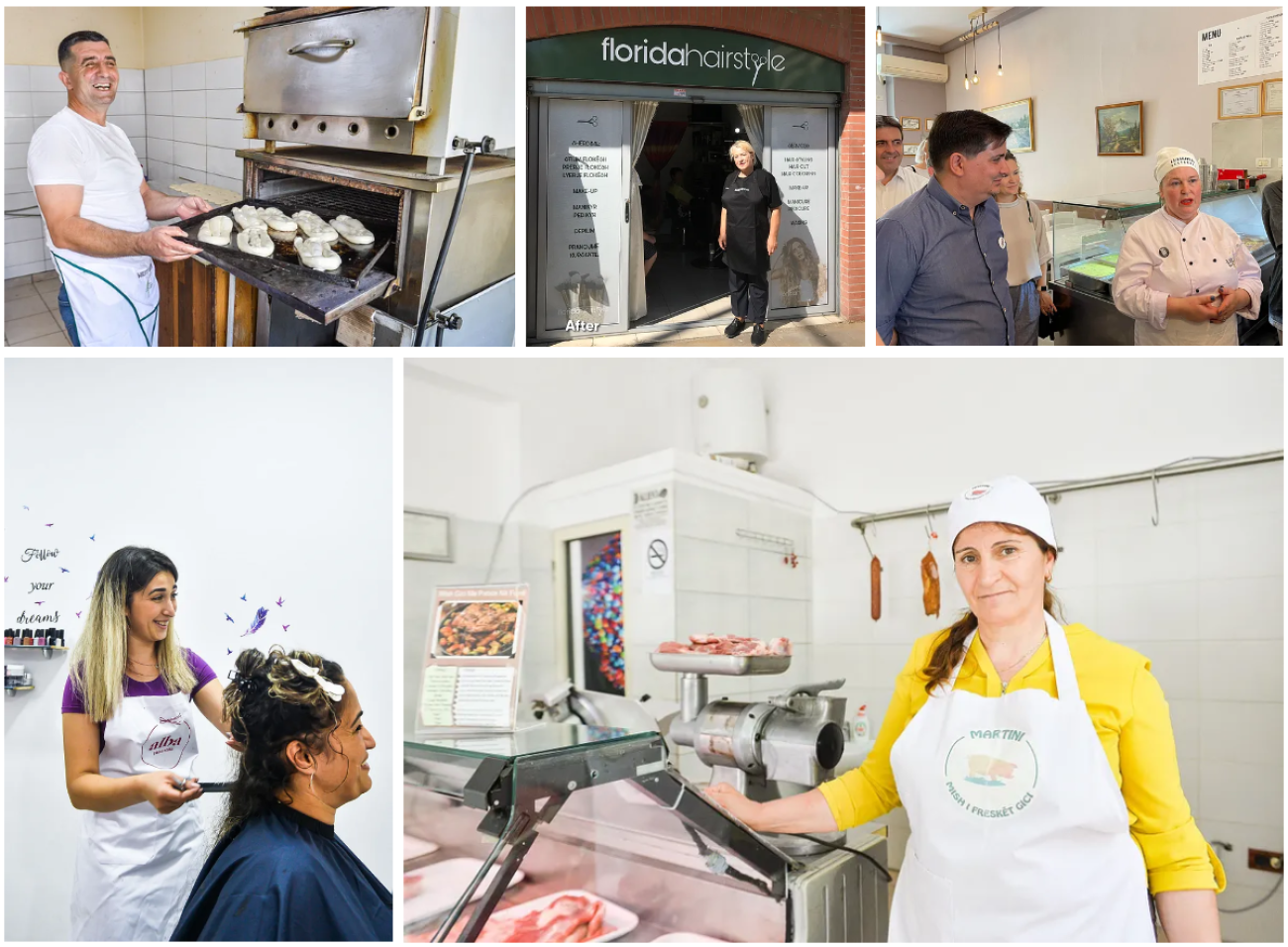
A story by Nora Kushti, Communications Specialist at UNDP Albania.
Qereke is a small village located 20 kilometers from Tirana. As you stroll through its streets, it’s difficult to imagine the chaos once felt here, which was caused by a devastating earthquake that killed loved ones, rocked homes, and closed businesses.
Today, in the small village, farmers quietly tend to their gardens and harvests.
Children in school uniforms and backpacks giggle as they walk to their schools and kindergartens. In Qereke, the kindergarten is called Europa, a reminder that Europe has permanently made its mark in this area!
Life is peaceful here. Nothing compares to the scenes witnessed on November 26, 2019.

The Nightmare
That day was one of those that sticks in your memory forever.
The inhabitants of Qereke, and all of us, woke up to the most severe natural disaster in Albania’s recent history.
A 6.4 magnitude earthquake wreaked havoc on people’s lives, toppling homes and destroying businesses. Thousands of aftershocks sparked more waves of fear and terror. They left cities paralyzed and communities hopeless.
When I traveled to the most earthquake-affected communities, I met people who were inconsolable because of the deaths of loved ones, loss of possessions, businesses, and homes.
When I visited the previous home of a family of eight, all that was left was debris that was still stubbornly lying in their old yard. All eight members of the family were in ruins. The youngest was two, and the oldest was eighty-two.
Words could not describe the pain.
As I looked around me, I could only see demolished homes, apartment buildings, and commercial spaces-a stark reminder that life had irrevocably changed for many.
Three years on, the panorama has changed, but signs of that day remain.
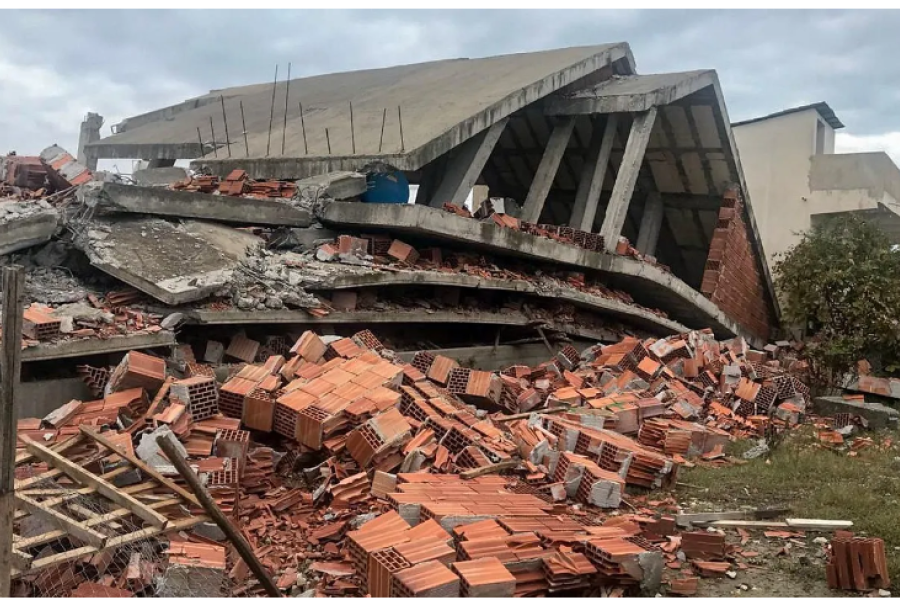
Bouncing Forward: An Economic Recovery Programme
The immediate Post-Disaster Needs Assessment provided a full panorama of the physical damages, economic losses, and costs of meeting recovery needs. Based on these findings, UNDP focused its long-term response and recovery support on four areas: 1) supporting the formulation and implementation of social protection service delivery; 2) supporting local economies and communities through an earthquake economic recovery and resilience programme; 3) investing in rebuilding public infrastructure, including educational facilities; and 4) strengthening the country’s disaster risk preparedness, management, and response.
Immediately after the earthquake, UNDP launched a social protection response project in the municipalities of Durres, Kruje, and Shijak-mostly affected by the earthquake.
500 children and families benefited from a variety of services provided by the project.
13 partner civil society organizations provided specialized social assistance and psycho-social support to over 1,000 families in need.
18 community-based initiatives helped strengthen the voices of citizens in decisions that affected their lives.
For 50 women and men from rural and urban areas, a livelihood support scheme strengthened their ability to generate income and withstand economic shocks.
The project funded by Sustainable Development Goals Acceleration Fund, established with donations from the governments of the United Kingdom, Finland, and Norway- helped people get back on their feet and rebuild their lives.
Building schools of the future for Albania’s young generation
The earthquake damaged the infrastructure of 321 education institutions in the affected municipalities. At the International Donors’ Conference, the EU pledged €115 million from its budget to rapidly reconstruct and rehabilitate key public buildings. This is how the #EU4Schools Programme came to life with a budget of EUR 75 million from the EU and UNDP’s own contribution of EUR 765,000 to target 63 educational facilities in the 11 earthquake affected municipalities. This was a noble act of support benefiting the country’s youngest generation.
24,500 students, children, and teachers benefit from the programme.
UNDP has combined two key principles during the reconstruction process: #BuildBackBetter and #BuildBackTogether implying stronger structures that can resist natural disasters, bearing the highest international standards of quality and safety, with renewable energy sources, being fully accessible for pupils and children with disabilities, and built together with the community to foster sustainability and ownership.
Two years since the start of the programme, 34 education institutions have been completed, enabling 10,087 children and academic staff to return to brand new schools which have made learning and teaching more interesting, more productive, and more fun.

The director of Korb Muca: “The school welcomed its 130 pupils this new academic year. The number of students has increased compared to previous years. It is so inspiring to see classes being conducted in an enabling environment for children to learn and grow. We are putting emphasis on performance, and I am happy to say it has improved.
###
The Iliria 9-year school and kindergarten in Fushe Kruja were both severely damaged by the earthquake. The new school, a one-million-euro investment from the government of Croatia, welcomed its 150 pupils and 14 members of the academic staff to the new facility at the start of the academic year in September.
The school today provides the ideal setup: modern classrooms, indoor and outdoor sports grounds, cooling and heating systems, and facilities for cultural events.
Durres Municipality will also benefit from the repair of two schools and one kindergarten supported by the the SDG Acceleration made up of contributions from the Governments of Denmark and United Kingdom.
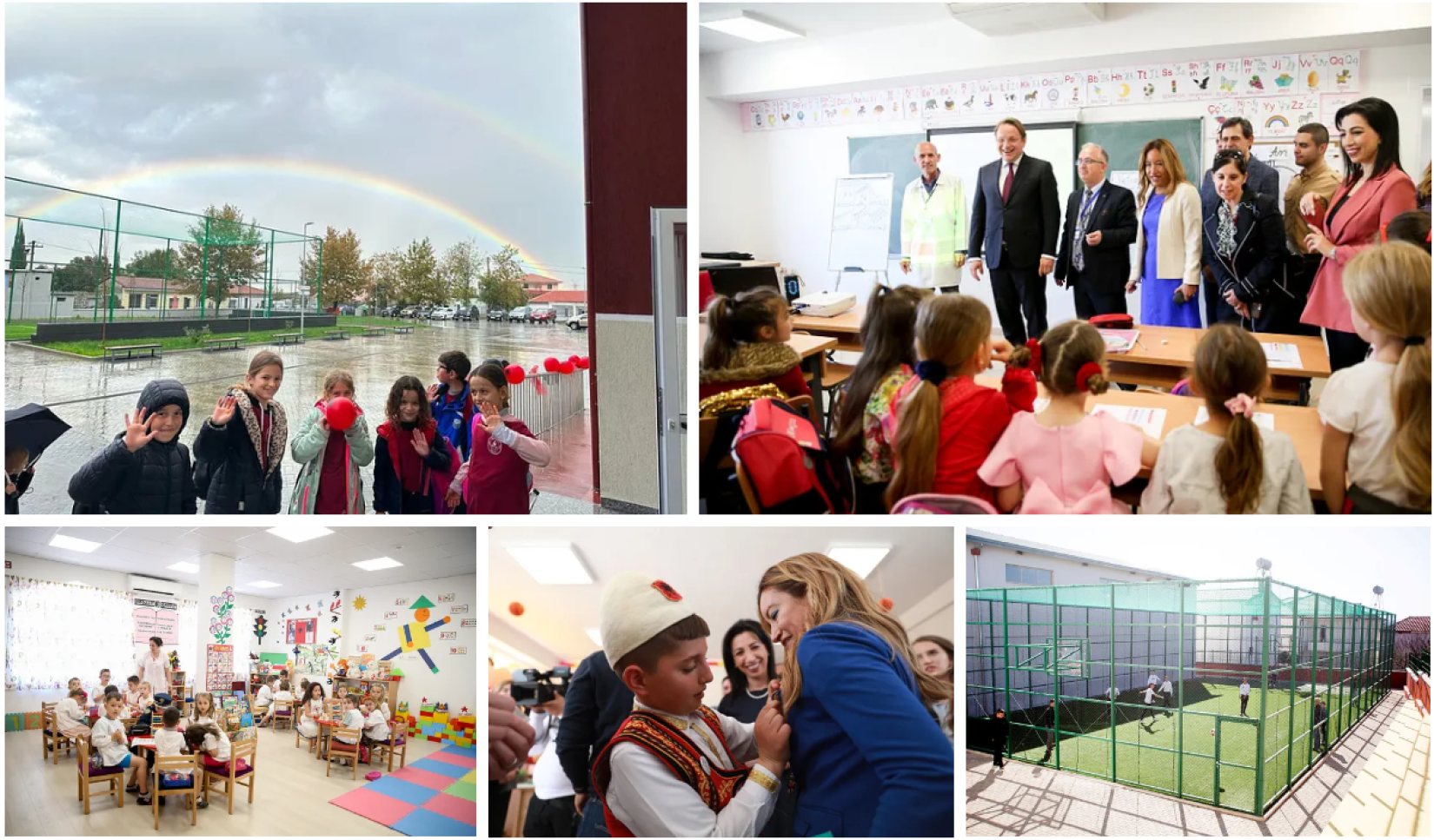
###
The Iliria 9-year school and kindergarten in Fushe Kruja were both severely damaged by the earthquake. The new school, a one-million-euro investment from the government of Croatia, welcomed its 150 pupils and 14 members of the academic staff to the new facility at the start of the academic year in September.
The school today provides the ideal setup: modern classrooms, indoor and outdoor sports grounds, cooling and heating systems, and facilities for cultural events.
Durres Municipality will also benefit from the repair of two schools and one kindergarten supported by the the SDG Acceleration made up of contributions from the Governments of Denmark and United Kingdom.

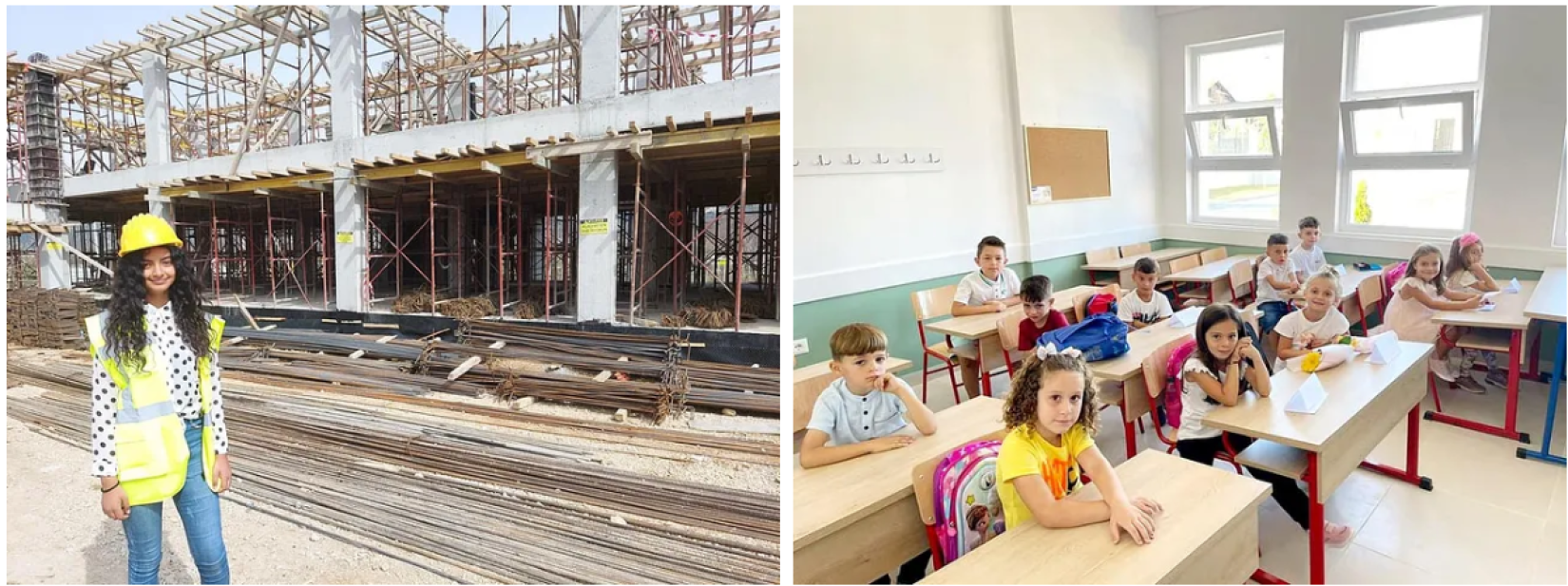
Bouncing Forward: An Economic Recovery Programme
To support the government in its economic recovery efforts, the Economic Recovery and Resilience Programme was born. Funded by the governments of the United Kingdom and the Netherlands, the program works to stimulate the economy by revitalizing the competitiveness of micro, small, and medium-sized enterprises.
Micro and small enterprise constitute the backbone of the Albanian economy, accounting for 99.8% of the total number of enterprises and 81.6% of all employment.
Two successfully tested approaches were deployed: the In Motion and the Supplier Development Programme.
Family-run micro-and small businesses were particularly hard hit by the earthquake. UNDP kicked off a pilot intervention making use of its “In Motion” methodology- an enterprise recovery program that has been successfully implemented in other countries. 15 micro-businesses in Durres municipality, joined the program at the pilot phase.
“The project supported us with situational diagnosis, training in soft skills and business skills, improvement of our business image, and provision of equipment,” says Arben the owner of a lamp store.
The intervention proved instrumental in helping recover business infrastructure and re-establishing their economic activities in the market.The programme helped turn the beneficiaries from business owners, into entrepreneurs able to reinvent themselves and their business image after the crisis. Following the success of the pilot phase, the project was extended to Astir, in Tirana, to benefit 35 other businesses ranging from small cafes and restaurants to mini markets and beauty salons.
Tirana Municipality joined forces with the project to support these businesses.

“The 2019 earthquake caused severe damage in the area only three months after we started our businesses. We were forced to close our business. It was a shocking experience for all of us, one we will never forget. I am very grateful for the assistance provided by In Motion. This is helping us take our business to the next level. The earthquake and the pandemic put us in a tight corner, and we often thought to close it down. We are still open because of In Motion”, said Rudina, the owner of a small restaurant in Astir.
The project is currently extended to Lezhe and Kavaje municipalities.
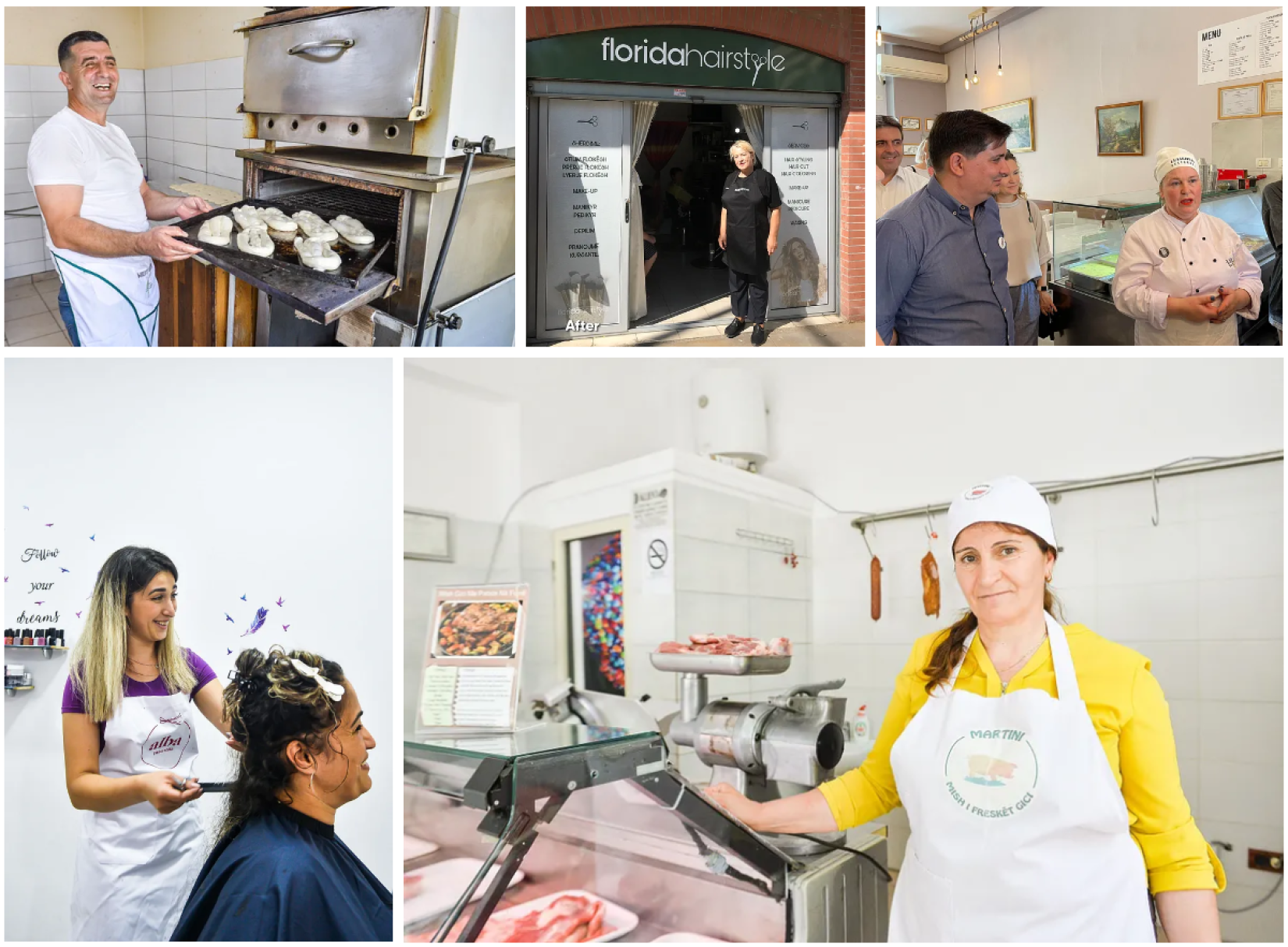
Partnering with the Private Sector to Amplify Results
Capitalizing on the success of In Motion, the American Bank of Investment partnered with UNDP and committed USD 100,000 to help fifty micro and small businesses in Durres and Lezha recover from the impact of the earthquake. UNDP believes that by pulling resources, knowledge and expertise and backing it up with long-term commitment, all together can contribute to building a sustainable future in which we all benefit.
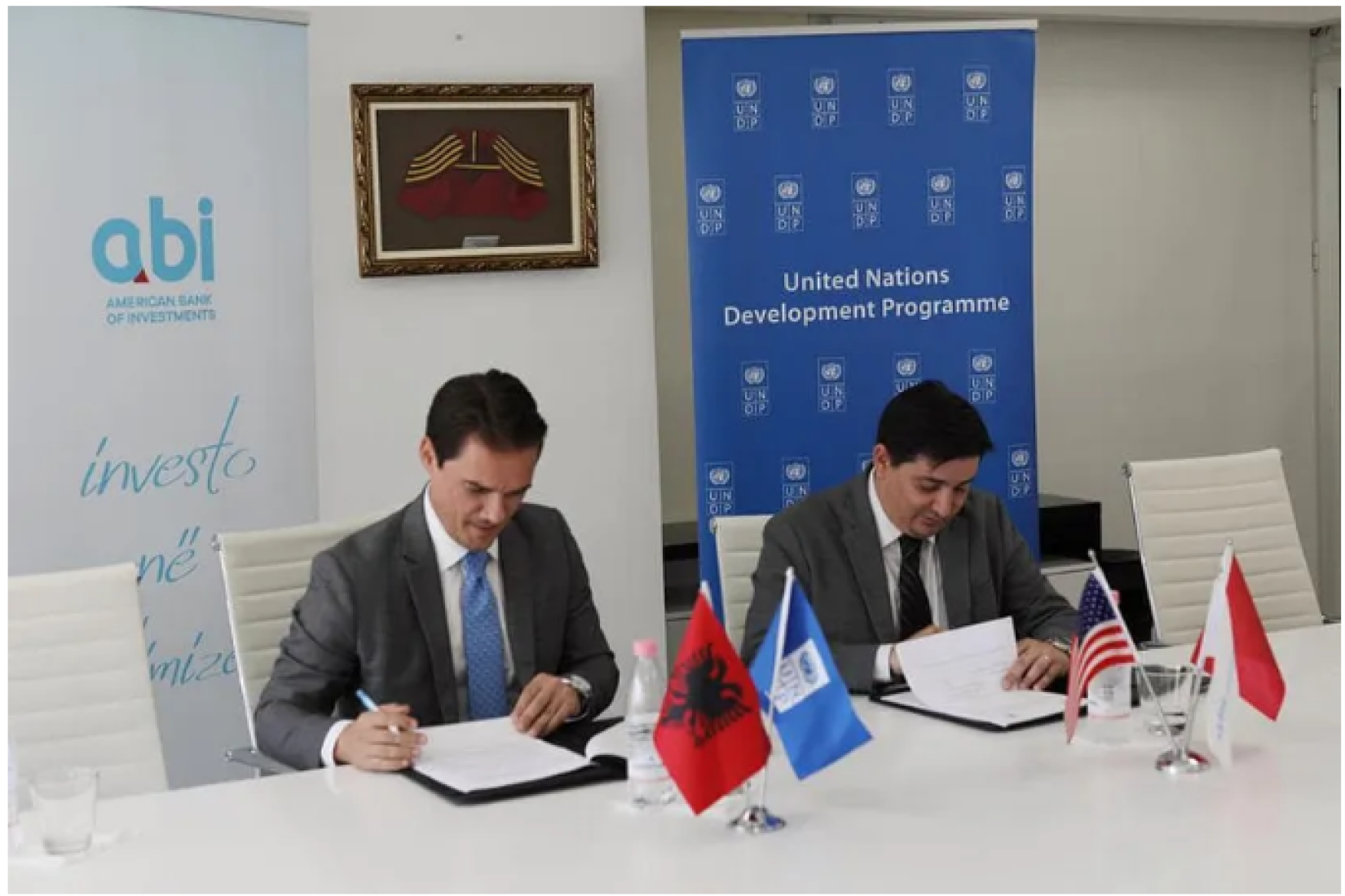
Strengthening value chains
To address the disruption in value chains caused by the earthquake and ensuing COVID-19 pandemic, UNDP launched the Supplier’s Development Programme. It aims to revitalize the economy, integrate small and medium-size enterprises in value chains, increase their competitiveness and strengthen their resilience to natural hazards and disasters.
A value chain, Starmar, a tourist complex in Lalzi Bay in the Municipality of Durres, was selected along with strategic suppliers, including two local businesses operating in the food processing sector, one medium-sized business operating in the construction sector, and one local micro-business in the services industry.
The participating businesses have started a 10-month journey of tailored technical assistance and training sessions on how to improve the quality and standards of their goods and services and increase market access.
The programme is providing local value chains with an opportunity to strengthen their productivity while also fostering the skills needed to embrace better business practices. Additionally, it is helping build up a more robust private sector, strengthen exporting capacities, and generate high-quality jobs. The integration of Albanian MSMEs into global value chains is fundamental not only for economic dynamism but also for the promotion of human development and poverty reduction, the cornerstones of the Sustainable Development Goals.
UNDP Albania aspires to extend the support it is providing through the Supplier’s Development Programme to an increasing number of local value chains across multiple strategic sectors of the economy, ultimately offering an effective solution for public policy strategies aimed at improving MSMEs’ competitiveness in the country.
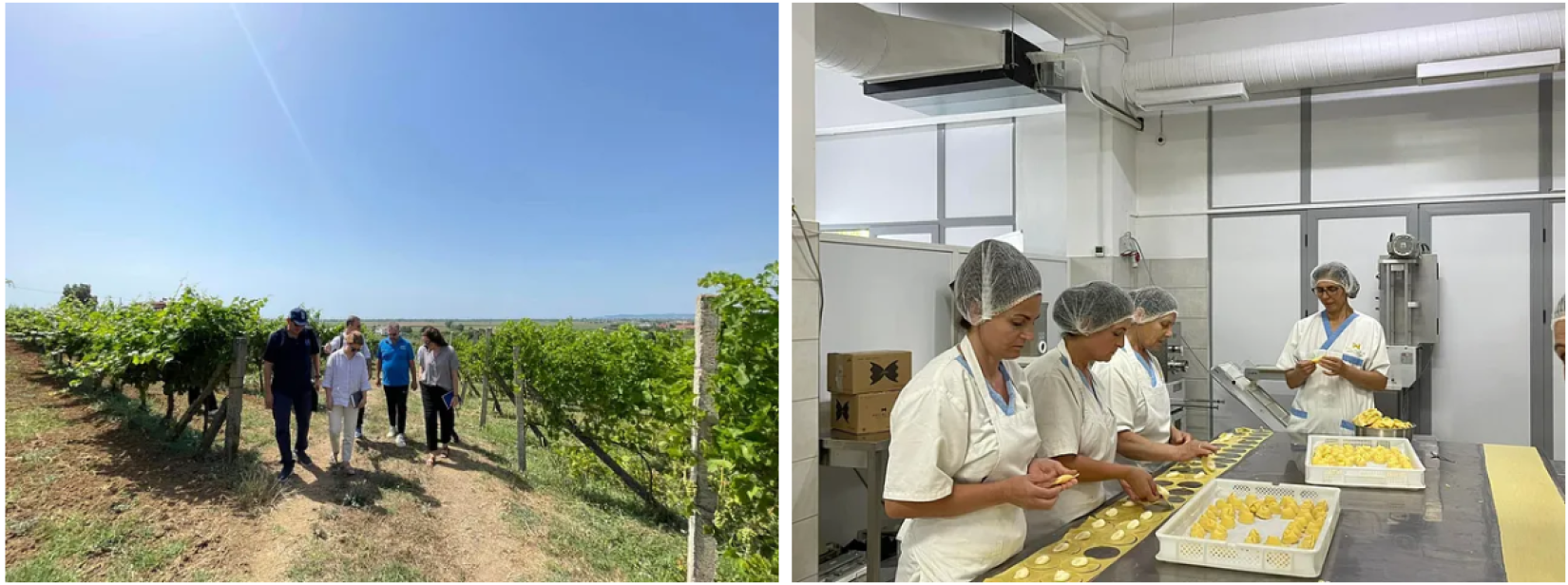
Preparing the country to cope with natural disasters
The country’s emergency response capacities were overburdened after the earthquake, making evident the need to strengthen preparedness, prevention and mitigation response at all levels.
UNDP held consultations and engaged with government institutions, businesses, civil society throughout Albania to ensure an inclusive, systems-thinking approach.The following stakeholder analysis and capacity assessment identified a number of issues and gaps with Albania’s Disaster Risk Management System.
In cooperation with the National Civil Protection Agency, UNDP has activated the country’s national civil protection system.
This month, Albania became a full member of the EU Civil Protection Mechanism as a result of its efforts and the enormous assistance it has received from international development partners in the wake of the 2019 earthquakes and the COVID-19 epidemic.
At the national level and in partnership with the governments of Sweden and Portugal, UNDP is supporting the National Civil Protection Agency to develop and update the disaster risk management and civil protection systems of Albania. The National Risk Assessment and National DRR Strategy and its Action Plan have already been developed, and the preparation of the National Civil Emergency Plan is currently ongoing.
Currently, the National Risk Assessment and Disaster Risk Reduction Strategy are at the final government approval stage, whereas the National Civil Emergency Plan process has already started. Albania will have its National DRR Strategy for the first time.
These instruments are a solid foundation for the disaster risk management system in Albania and an important milestone for all three levels of civil protection. They will serve, as an important guideline for prefectures and municipalities dealing with disaster-related risks.UNDP is assisting Fieri Prefecture and its 6 municipalities to prepare disaster-risk reduction strategic and planning documents.
UNDP is currently supporting the National Seismographic Network to strengthen seismic data collection, processing, and analysis by renewing existing strong motion seismic stations and adding 10 new ones across the country. Reducing the drivers of risk is a necessary path to building resilience.
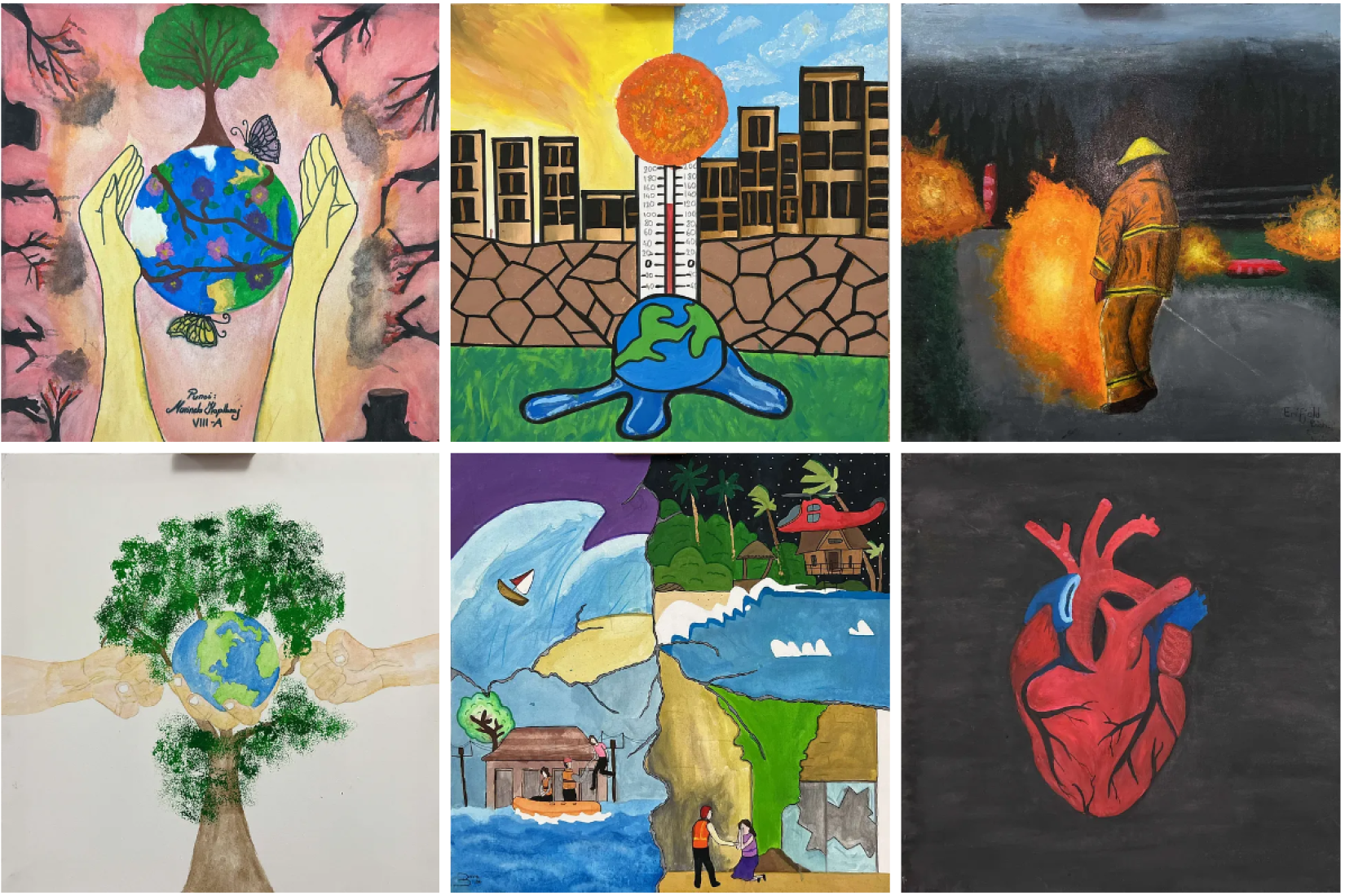

Following the earthquake, it was critical to improve the ability of firefighting services throughout the government to become operational, as well as to implement adequate rescue and response methods and procedures. Thanks to funding from the Government of Poland, a dedicated project is helping strengthen the Fire Protection and Rescue Service in the ten most earthquake-affected municipalities across Albania: Lezha, Kurbin, Kruja, Kamza, Shijak, Kavaja, Fier and Pogradec. Pillars of the intervention include the construction of three firefighting stations, the provision of three fire trucks, 170 sets of firefighter uniforms.
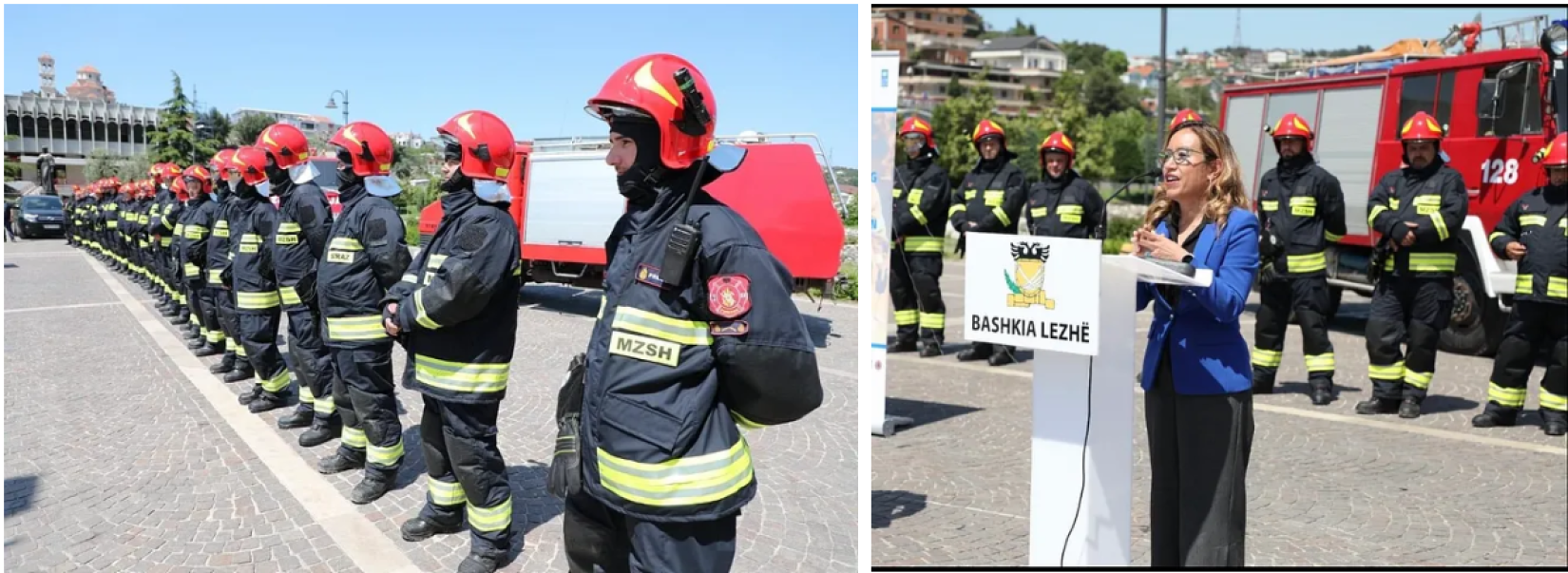
Three years on
There is hope in Albania. You can see it in classrooms in Qereke and elsewhere, where more children are returning to brand new schools every day. You can hear it in their voices, as they share their hopes and aspirations for the future.Their gratitude too. The same earthquake that caused devastation and sorrow created opportunities to #BuildForwardBetter and built new partnerships for development benefiting Albanian citizens.

Written by


















